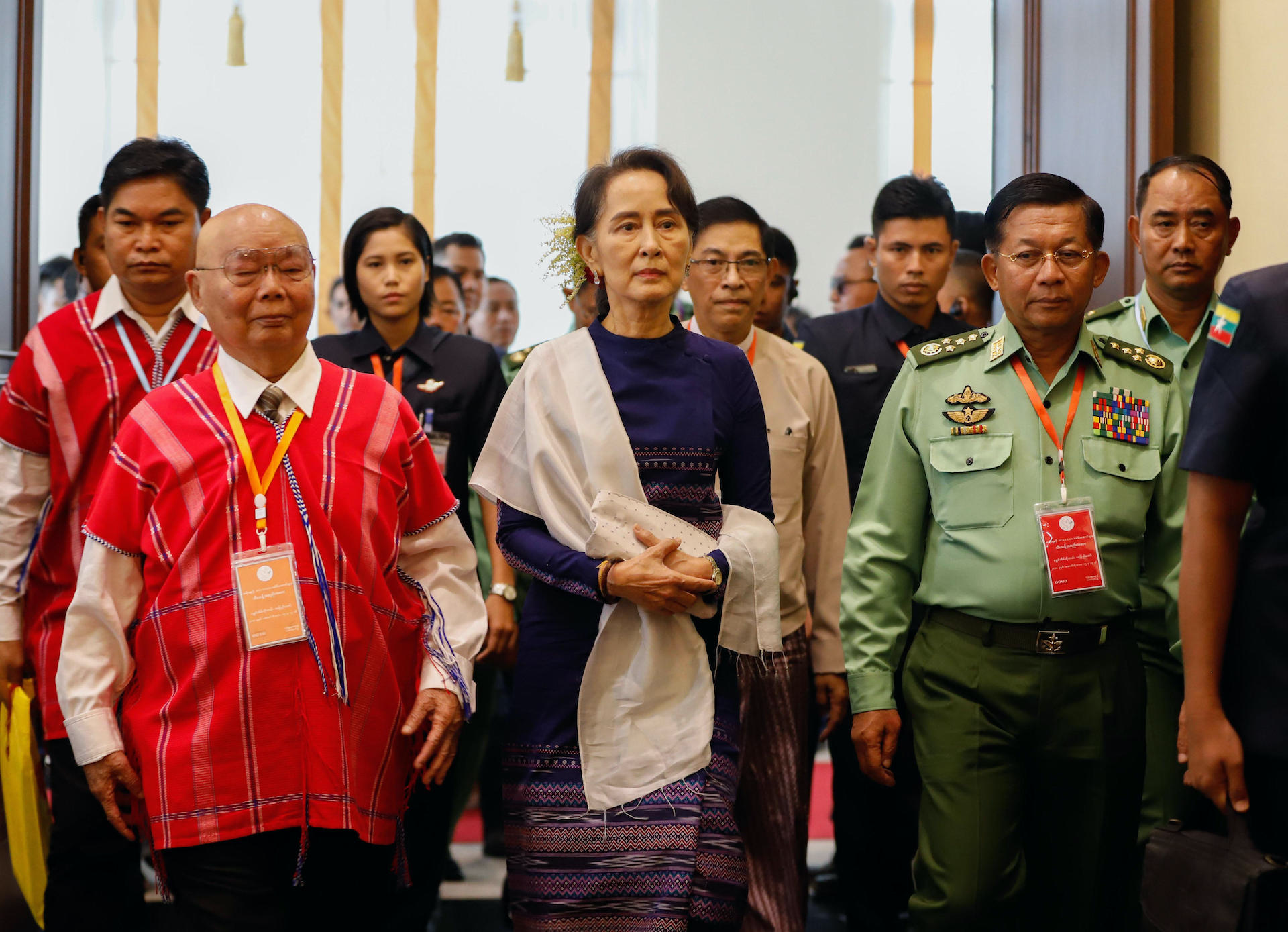|
|
|
15 October 2023 marks the eighth anniversary of the signing of the Nationwide Ceasefire Agreement, which the State Administration Council and few remaining ethnic armed organisations in the accord are honouring in Nay Pyi Taw. Although the NCA process did involve a lot of theatre, the SAC’s true commemoration of the NCA occurred in the middle of the night earlier this week, when the military bombed the Kachin internally displaced persons’ camp of Munglai Hkyet, near the border with China. The attack killed at least 29 persons, including young children, with 56 more injured. Throughout the NCA negotiation and attempted implementation periods, fighting and human rights violations raged on, especially in the country’s north. The Myanmar military and government blocked humanitarian assistance then, as the SAC continues now. The international community responded at times with statements of concern and other assistance, but lacked coherent approaches to curtail the killing or ensure compliance with agreements.
On this anniversary, the NCA’s vestigial institutions remain without public legitimacy, manipulated as part of the SAC’s strategy to divide, confuse, and manipulate national and international actors. The NCA’s basic principles remain valued by various actors, but would be more likely to be practised through new and different approaches and processes. Drawn from an analysis of the NCA published by TNI earlier this year, this summary highlights how the accord was never inclusive, effectively developed or truly implemented and is not fit for purpose in a political and conflict landscape greatly changed since the 2021 coup.
These commentaries are intended to contribute to a broader understanding of the many challenges facing the country and its peoples.
See the complete list of all the Myanmar commentaries.
|
|
|
|
The Nationwide Ceasefire Agreement in Myanmar
The Time for Reflection and New Solutions
A TNI Myanmar Commentary
|
|
 Ex-KNU chairman Saw Mutu Say Poe, State Counselor Aung San Suu Kyi and Snr-Gen. Min Aung Hlaing at NCA meeting, Nay Pyi Taw, October 2018. / Credit: BXinhua/Alamy
Ex-KNU chairman Saw Mutu Say Poe, State Counselor Aung San Suu Kyi and Snr-Gen. Min Aung Hlaing at NCA meeting, Nay Pyi Taw, October 2018. / Credit: BXinhua/Alamy
|
|
|
During the past three decades, the term ‘peace process’ has been commonly used in Myanmar to describe endeavours to end the country’s long-running political and ethnic conflicts. In reality, the Myanmar peace process has always been one of the most labyrinthine in the world. Dating back to 1989, a diversity of unilateral, bilateral and multilateral processes has been underway. In recent years, they were held together by the aspirations of a Nationwide Ceasefire Agreement (NCA) and 21st Century Panglong Conference. These two initiatives came to an abrupt halt with the military coup on 1 February 2021.
To date, there has been no ‘peace process’ breakthrough that has led to national reconciliation and meaningful reform. The country remains far from the achievement of peace that reaches to all peoples, and Myanmar is currently in the midst of one of its most violent and conflict-divided periods of history since independence in 1948. The peace process – as reconfigured by government after 2011 – no longer exists.
The present breakdown, however, should not be a time of resignation and despair. In the determination of young people and re-imagining of national politics since the coup, there are hopes that a new realism has entered the peace and reform vocabulary which will ultimately lead to effective solutions. For this to happen, it is vital that lessons are learned from the injustices and experiences of the past. Far from being new, the NCA was the latest in a long line of peace process failures, and it repeated many of the inequalities and inconsistencies that undermined peace efforts during previous cycles of government. Despite its high profile, the NCA never marked a moment of national breakthrough. Rather, conflict spread in several parts of the country from the time of its signing, pre-shadowing the state of ethno-political collapse which exists today.
For these reasons, the NCA’s journey demands close examination.
|
|
|
|
|
|
|
|
|